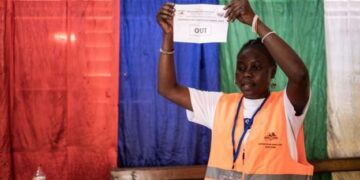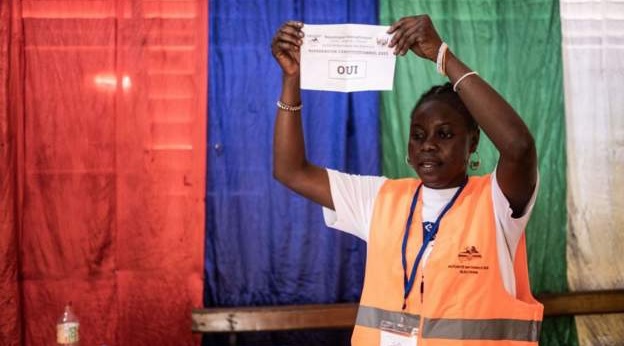By John Ikani
Provisional results announced by the referendum’s oversight committee reveal that an overwhelming majority in the Central African Republic approved the constitutional changes, with more than 95% of the vote in favour.
However, opposition parties and certain civil society groups boycotted the vote, expressing concerns that the amended law aimed to perpetuate President Faustin-Archange Touadéra’s hold on power indefinitely.
Their grievances included the lack of transparency in the referendum process and the limited time provided for a thorough debate on the proposed provisions.
Despite nearly two million registered voters, the turnout was reported as low, raising questions about the level of popular participation in the referendum.
The proposed constitutional changes entail the removal of the presidential two-term limit, allowing the president to serve for seven years instead of five.
In addition, the revised law disqualifies politicians with dual citizenship from running for the presidency.
Moreover, under the new amendments, the role of vice-president will be introduced, with the president having the authority to appoint this position.
The Senate will be dissolved, resulting in a transformation of the parliament into a single chamber.
Furthermore, the number of supreme court judges will be increased from nine to eleven, and both the president and the national assembly will be able to select three judges each, as opposed to their previous capacity of selecting only one each.
President Touadéra and his United Hearts Party assert that they are acting in accordance with the will of the people.
Conversely, the opposition has denounced these changes as a “constitutional coup.”
President Touadéra’s administration has been grappling with rebel groups that have controlled significant portions of the country since 2016, stemming from a previous rebellion in 2013 that ousted former President François Bozizé.
Seeking assistance, Touadéra sought aid from Russia in 2018. Notably, ahead of the recent vote, observers witnessed dozens of fighters from Russia’s Wagner mercenary group arriving in the Central African Republic.




































